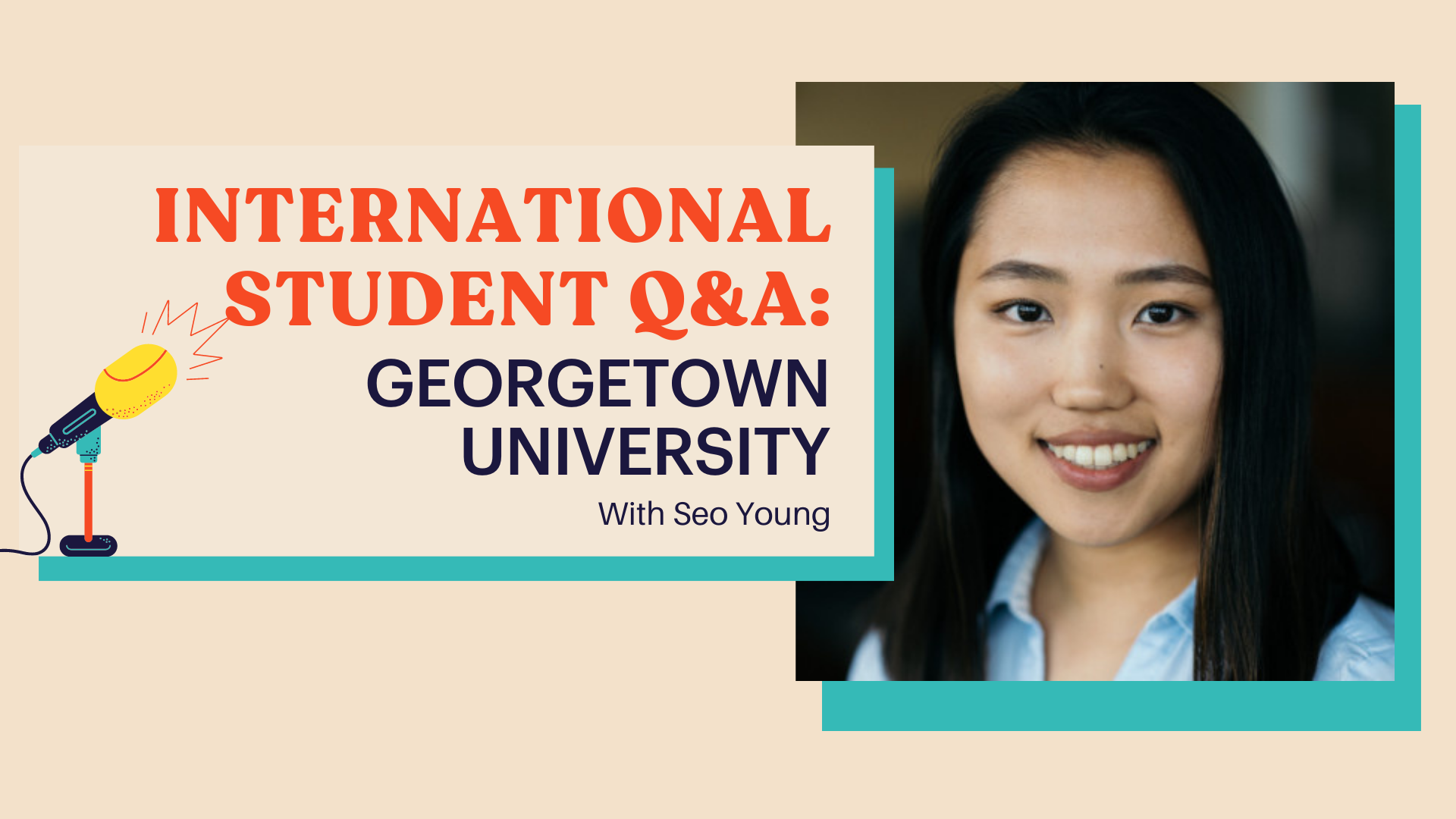International Student Q&A: Georgetown University
“This is part of an ongoing series about international students studying in the US. We will be featuring their stories about their experiences in the United States. Today Seo Young Lee (Georgetown ‘21), one of our Campus Program Managers, is sharing her story. ”
Q) Can you introduce yourself?
A) My name is Seo Young Lee, and I’m a Program Manager at ConnectED. I’m also a rising senior at Georgetown University, currently starting out my gap year in Seoul, South Korea.
Q) What made you decide to study in the US?
A) Growing up, I attended multiple international schools as my family moved from country to country, but an American curriculum was something that stayed constant throughout. Having been brought up in a somewhat “American” environment in this way, I was familiar with the culture and curious about the liberal arts education that American universities are renowned for. Pursuing my education in the U.S. seemed like the natural next step.
Q) How has it been as an international student looking for a job in the current job market? What challenges are you facing? Any silver linings?
A) In short, not easy! I think the reality of being an international student, and how different my situation is from that of my friends, really started sinking in this year. With Covid-19 disrupting everything as my junior year came to a close, I came to understand much more tangibly that finding a job in the U.S. after college is not just a way of kicking off my career but also a ticket to remaining in the country -- a different kind of pressure. Despite the challenges that come with such a realization, I appreciate that it’s made me much more proactive in reflecting and preparing for the last stretch of my time in college.
Q) What are some things that you wish you knew about before coming to the US as an international student?
A) I wish I knew everything I know now about what it means to be studying on a visa. The truth is, the implications of being an F-1 student starts even before you arrive on campus. My advice to all international students would be to do as much research as you can on the universities you’re looking at. Check out the support systems and resources available to internationals and all students. Think about what kind of a career you would realistically consider after graduation and reflect those in your chosen major. These pieces of advice, of course, are relevant to any incoming college student, but I think the stakes are somewhat higher for internationals. For instance, your major literally determines the types of internships you’ll be eligible to work for through CPT or OPT authorization. Knowing the nuances of your status will help you make decisions that are as well informed as possible.
Q) How did the pandemic affect your fall semester plans?
A) Without this pandemic, I don’t think I would have had enough reason or courage to take a gap year. Going through such an emotional, turbulent summer really put a lot of things into perspective for me. Perhaps for the first time in my life, I’m straying away from the obvious path that most people around me are taking, and I’m both exhilarated and nervous about the blank slate ahead of me. I think the pandemic has pushed us to make the most of our situation, whatever that may be, and that’s what I’m trying to do.
Q) As a campus program manager, you probably had the chance to interact with many international students during these uncertain times. Can you share with us what your experience as a campus program manager has been like?
A) I’m grateful to have had the opportunity to lead and work with over twenty college students this summer! The ConnectED intern cohort is such a diverse group of people, and having a community of students -- especially international students like myself -- fostered a huge sense of support and empathy. I felt energized knowing that ConnectED is a company that is focused on alleviating one of many pain points that internationals face -- all the more important at a time when students have been made so vulnerable by the pandemic.

